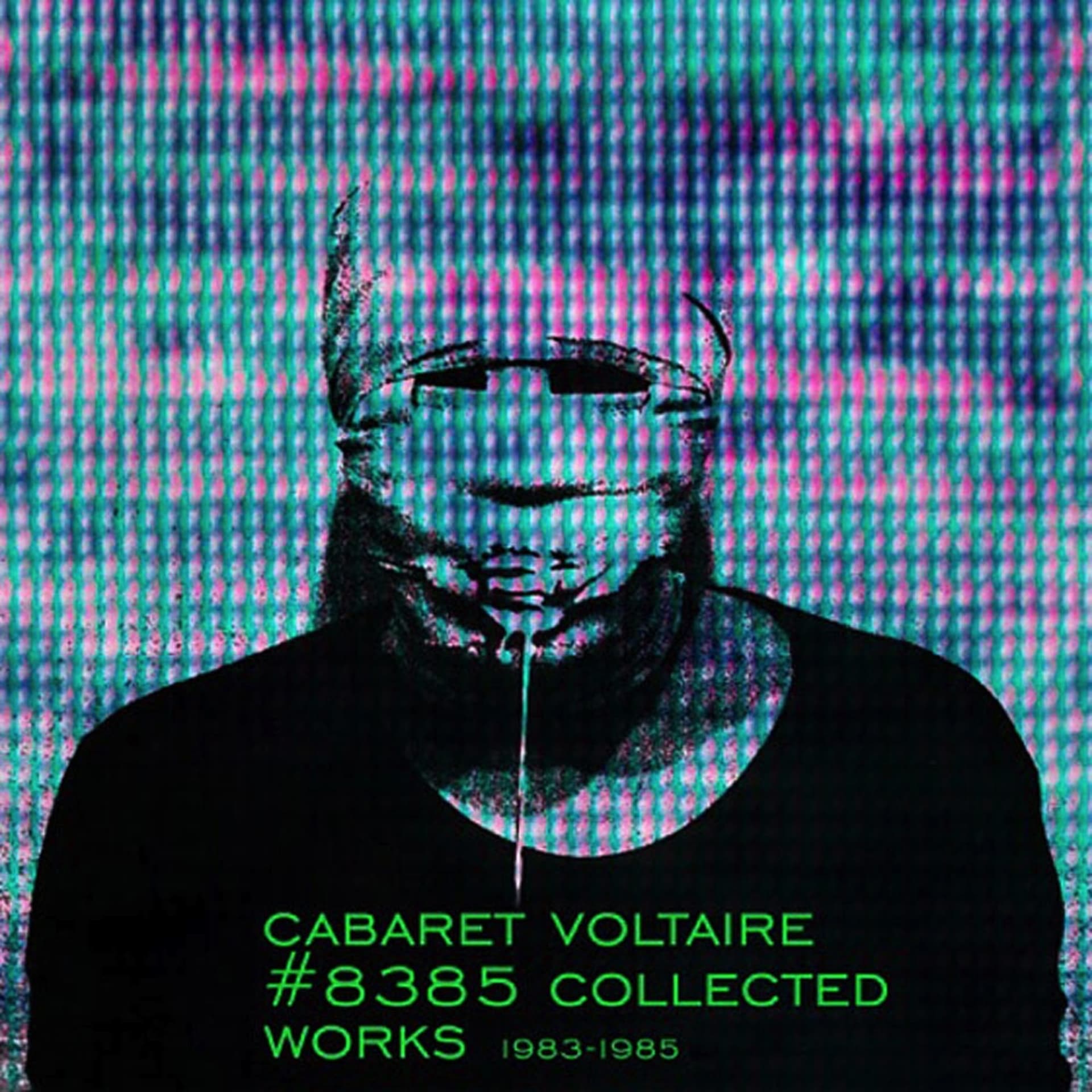
Factory Floor’s Nik Void recommends Cabaret Voltaire’s #8385 (Collected Works 1983-1985)
Nik Void is a guitarist, producer, and vocalist best known as a member of electro-industrial trio Factory Floor. She also collaborated last year with Chris Carter and Cosey Fanni Tutti for the live LP Carter Tutti Void. This recommendation of the seminal Sheffield post-punk band’s collected works box set was taken from the Winter 2013 issue of Electronic Beats Magazine. Interview conducted by A.J. Samuels.
I’ve always been a big fan of Cabaret Voltaire, having heard “Nag Nag Nag” so many times at indie discos in the U.K. as a teenager. But my real introduction came through a DVD released on Mute featuring their Doublevision VHS work. Being more into visuals at that point, and manipulating video and film as part of my art degree, the politics of the news clips and subliminal messages provoked a strong reaction in me, even though it was probably twenty years after they were first created. But I first met Richard Kirk when we asked him to remix “Two Different Ways”, a Factory Floor single on DFA. Happily, he loved our track and when he DJ’d for us at an event we curated at the Village Underground, the best part of that night was just sitting backstage and listening to his stories. He talked about how Cabs drove around in a van full of TVs which they used on stage, but after the tour he took them all home and played static at full blast just because he didn’t like silence. He really has that special way of looking at things. You know instantly that he isn’t conventional.
The material contained in this box set covers a period that perhaps a lot of experimental fans of Cabs overlook. However, The Crackdown has always been my favorite album. It was made just after Chris Watson left and, personally, I’ve always liked the transitional stages in any artist’s work. I see the album as a turning point, when they started using mixed soundscapes alongside more formulated, traditionally structured tracks. This is, of course, an indication of the direction they would take on later. In terms of the box set’s internal progression, while you still have these menacing electronic purrs on “Over and Over”, “Diskono” from the Doublevision EP hints at a classic disco beat. These albums are still very post-punk dub but also feel more basic dance—as if they’re introducing more space, especially to the vocals. Stephen Mallinder still used a lot of vocal effects at that point, but here and there he uncovers his natural voice, like on Micro-Phonies and what came after. That album still has a murky air coursing through it—that dark electronic experimentalism that everyone loves the Cabs for and that still feels ahead of its time.
The Cabs’ influence on Factory Floor is similar to Throbbing Gristle’s. We’re inspired by their creative, almost workaholic approach, and the idea that you have your own base where you’re not just working on the music but the whole concept. You control where you go musically, what releases come out, where you play, and, importantly, you shake up the formula of playing live. Indeed, both Cabaret Voltaire and Factory Floor have a semi-improvisational approach where machines dictate what we’re doing as much as we’re trying to control the machines. It’s also a cut-and-paste mentality, and I know they were strongly influenced by Burroughs. Likewise, my vocals are always more about sound than they are about speaking something directly. The first track on Micro-Phonies, “Do Right”, is minimal, but it also uses these playful samples throughout. It reminds me of “Turn It Up” on our LP.
I think signing to Virgin was part of a natural progression for the band. MTV looked to them to feed them some originality, and the band saw that as an opportunity to get some money behind them to allow their work to continue.
Also, chart music was such a big thing in the seventies and eighties, so this is their way of trying to make their own “translation” of a pop record. Of course, only a few Cabs songs seeped through to the charts like “I Want You” and “Sensoria”, but it was enough to get people to buy the singles, then the album, and perhaps expose them to new ways of thinking.
In that sense, what Cabaret Voltaire and Factory Floor have in common is that we both sought to make music that’s a little bit different but also accessible. We want the channels of communication to be open. I think that’s what all great artwork is about: communicating an idea successfully. Ultimately, I think that’s what they achieved in the albums included in the box set, even though there’s always going to be a difference of opinion because it’s not as provocative as their early work. That said, in a twisted way, it kind of is. “I Want You” from The Covenant, The Sword And The Arm Of The Lord was actually done after Virgin said, “We want a hit, otherwise you’re out.” I think Richard said it was actually about masturbation, so you could say they got the last laugh. ~
#8385 (Collected Works 1983-1985) by Cabaret Voltaire is out now on Mute. This text first appeared first in Electronic Beats Magazine N° 36 (4, 2013). Read the full issue on issuu.com or in the embed below.
Published January 17, 2014. Words by A.J. Samuels.
